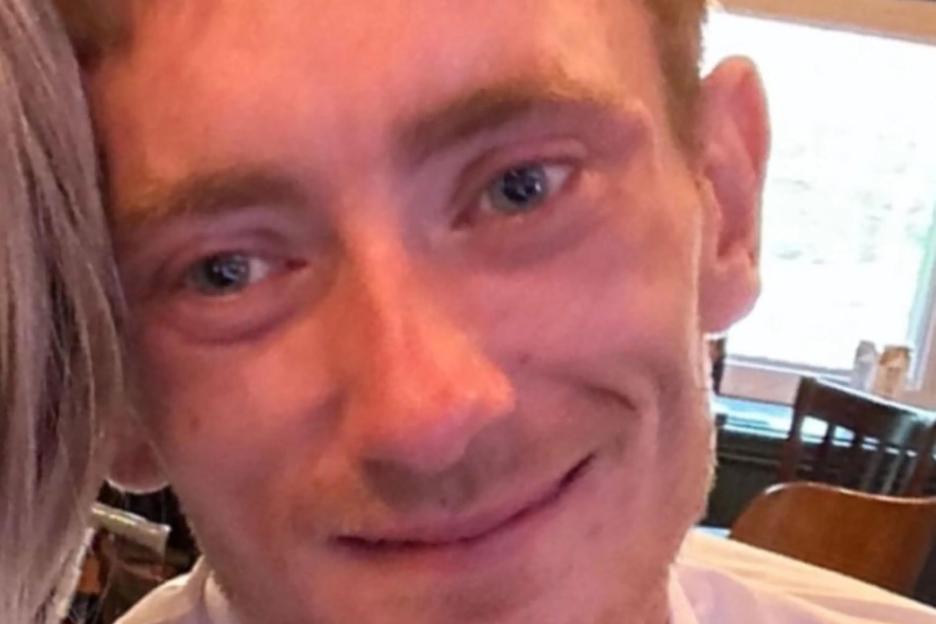Table of Contents
A BRITISH soldier tragically passed away from a gunshot wound to the roof of his mouth following leg injuries sustained from explosives, as revealed during an inquest.
Oliver Bovey, a former Royal Marine Commando aged 27, was engaged in combat in Donetsk against Russian forces when he incurred leg injuries from an explosion.
 The Royal Marine suffered a fatal gunshot wound to the roof of his mouthCredit: AFP
The Royal Marine suffered a fatal gunshot wound to the roof of his mouthCredit: AFP
The inquest revealed that the tourniquet applied could have potentially saved Oliver’s life; however, the post-mortem examination concluded he died from a single gunshot wound “to the roof of the mouth.”
The nature of the wound was consistent with that inflicted by a “high-velocity” assault rifle.
The coroner indicated there was “insufficient” evidence to determine a verdict of suicide, citing a lack of witnesses or evidence of intent.
Oliver, originally from Torquay, had expressed concerns to loved ones back home regarding the “evacuation of injured troops” shortly before his death.
Coroner Darren Slater addressed the court, stating: “The circumstances surrounding the gunshot wound to the head raise the possibility that it might have been self-inflicted.
“However, to conclude suicide, we must ascertain whether there was intent to end one’s life.
“Oli sustained blast injuries to his lower legs, which is not a typical scenario for suicide. There is no evidence to sufficiently suggest that Oli was responsible for the gunshot wound to his head.”
Mr. Slater acknowledged the “uncertainty” surrounding Oliver’s death in November of last year, and the results of the post-mortem were presented yesterday.
He added that the concerns Oliver raised about war casualties contributed to the “uncertainty” surrounding his death.
“There was a fatal gunshot wound to the head that could have been self-inflicted, but we cannot determine what transpired, and it could have been inflicted by someone else as well,” the coroner continued.
The post-mortem conducted by Dr. Russell Delaney identified “blast injuries” on Oliver’s lower legs, consistent with shrapnel from an anti-personnel mine or IED that detonated beneath him.
Dr. Delaney concluded that while the injuries would have resulted in blood loss, they would not have caused immediate death.
He indicated that the wounds “would have been treatable.”
The gunshot wound was not recorded in the initial post-mortem conducted by Ukrainian authorities, who noted that a tourniquet was in place and attributed the cause of death to “shrapnel wounds.”
 Oli expressed concerns about ‘medical casualties’ to family in EnglandCredit: Getty
Oli expressed concerns about ‘medical casualties’ to family in EnglandCredit: Getty
Dr. Delaney stated that the “immediate and primary cause of death” was a “penetrating wound to the head, entering through the roof of the mouth.”
He noted that the wound was consistent with being caused by a “high-velocity assault rifle.”
“Had he survived longer, the injuries to the lower leg could ultimately have been fatal,” the report further stated.
Dr. Delaney found that the wound could plausibly have been self-inflicted or inflicted by another person, but the post-mortem did not provide any insight into the reason or intent.
The court heard that Oliver had been deployed in a populated area where numerous casualties had been recovered and taken for medical examination at the local bureau.
Mr. Salter stated in a narrative verdict that the timing of Oliver raising his concerns before his death was “concerning.”
The coroner added: “We lack eyewitness accounts to ascertain what initially occurred.
“It appears that the lower limb injury from the explosion occurred first, and a tourniquet was applied.
“We have messages from Oliver to a friend expressing his worries about being evacuated from the battlefield. We cannot ascertain how serious that concern was for Oliver, but it was shortly before his death.
“There is uncertainty regarding what transpired. This concerns the reliability of the Ukrainian evidence and the inability to gather further testimonies.
“We have limited information about how the gunshot wound was inflicted; we cannot draw any further conclusions.
“I cannot rule out the possibility that Oliver inflicted that wound while severely injured, but it could also have been inflicted by another person.
“There is insufficient evidence to classify his death as a suicide; it remains ambiguous as we lack detailed information regarding that.”
In his formal conclusion, Mr. Salter stated: “Oliver Bovey was serving in the international legion of the Ukrainian army on 27 November 2024.
“While on a combat mission near the village of Hryhorivka, in the Bakhmut District of Donetsk Region, he sustained blast injuries to his legs, likely from an anti-personnel mine or improvised explosive device.
“These injuries would not have led to immediate death, and it appears a tourniquet was applied. There was also a single gunshot wound to the roof of the mouth, resulting in rapid death.
“This could have been self-inflicted or inflicted by another person.”







